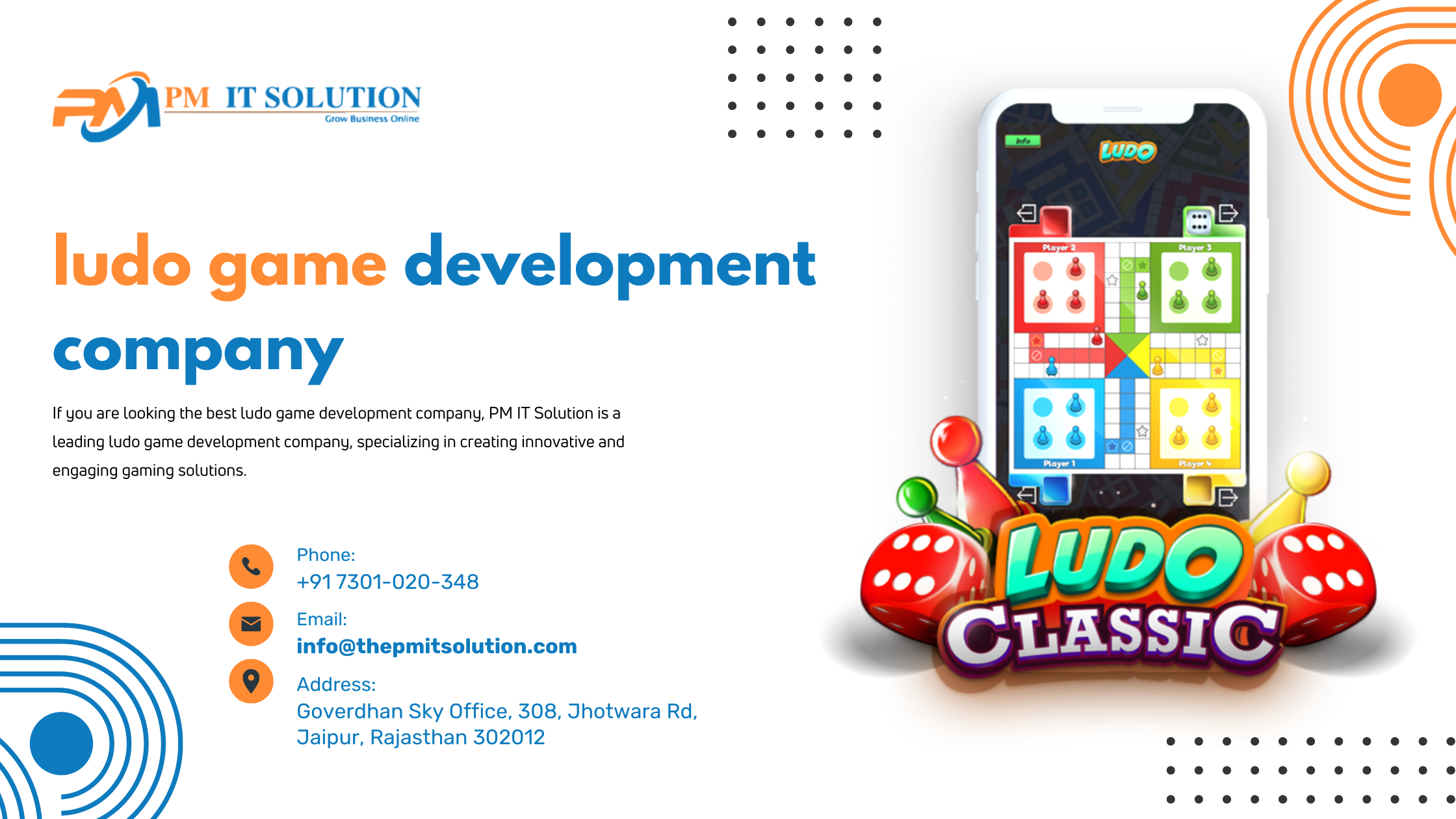Top Features Every Ludo Game Developer Should Include in Multiplayer Board Games

The popularity of Ludo, a classic board game, has soared in the digital era, captivating millions of players worldwide. The appeal lies in nostalgia and the seamless transition of this traditional game into the virtual world. For a Ludo game developer, creating a multiplayer game that stands out in a competitive market requires careful attention to features that enhance gameplay, user engagement, and retention.
This blog will explore the top features every Ludo game developer should include in their multiplayer board games to ensure an engaging and successful gaming experience.
Real-Time Multiplayer Functionality
The cornerstone of any successful multiplayer Ludo game is its ability to connect players in real time. This feature allows users to compete globally with friends, family, or other players.
Critical elements of real-time multiplayer functionality include:
- Online Matchmaking: A system that pairs players based on skill levels or preferences.
- Private Rooms: Users can create private rooms and invite specific players.
- Local Multiplayer: Allowing multiple players to play on the same device.
This feature is essential for a Ludo company to foster social interaction and retain users.
Cross-Platform Compatibility
Modern players access games on various devices, including Android, iOS, and PCs. Ensuring cross-platform compatibility allows players to compete with others regardless of their device.
- Build games using board game development software that supports multiple platforms.
- Use cloud-based saving systems so players can switch devices without losing progress.
This feature significantly expands the user base and enhances players' convenience.
Customizable Gameplay Options
One of Ludo's charms is its flexibility. Different rules and variations are enjoyed across regions, and customizable gameplay options ensure the app appeals to a global audience.
Customizable features to include:
- Turn the token on or off, capturing.
- Adjust rules for rolling sixes or entering the game.
- Select the number of tokens (e.g., 2, 4, or 6) per player).
- Choose from different board themes.
Customization empowers players to tailor their experience, making the game more enjoyable.
Intuitive UI/UX Design
A well-designed user interface (UI) and user experience (UX) are vital for retaining players. The game should be visually appealing, easy to navigate, and responsive.
- Use vibrant, high-quality graphics that mimic a physical Ludo board.
- Include clear instructions and tutorials for first-time players.
- Incorporate smooth animations for dice rolls, token movements, and winning celebrations.
An intuitive design ensures players can focus on the gameplay without distractions.
Engaging Social Features
Social features significantly enhance the multiplayer experience, encouraging players to connect and compete. These include:
- In-Game Chat: Allow players to communicate via text or voice during matches.
- Emojis and Reactions: Add fun and expressive elements for interactions.
- Friend Invites: Enable players to invite friends to join games quickly.
For a Ludo game developer, integrating social features fosters community-building and increases player retention.
Reward and Achievement Systems
Gamification is an excellent strategy to keep players engaged. A robust reward system motivates users to play more and aim higher.
- Offer coins or points for winning games and completing daily tasks.
- Introduce leaderboards to showcase top players globally or regionally.
- Unlock achievements for milestones, such as consecutive wins or specific gameplay actions.
Rewards and achievements make the game more competitive and rewarding for players.
Real-Money Gaming Options
Integrating real-money gaming features can attract competitive players and increase revenue. However, this feature requires careful implementation:
- Use secure payment gateways for deposits and withdrawals.
- Ensure compliance with local gaming regulations.
- Add features like betting limits to promote responsible gaming.
This feature is a popular trend among multiplayer board games, offering players an additional layer of excitement.
Multiple Game Modes
Variety is critical to maintaining long-term player interest. Offering multiple game modes allows players to choose experiences that suit their preferences.
Popular game modes for multiplayer Ludo include:
- Classic Mode: The traditional gameplay format.
- Quick Mode: A faster version of the game for shorter sessions.
- Custom Mode: Players can set their rules and conditions.
- Tournament Mode: Competitive matches with elimination rounds and prizes.
A diverse range of game modes keeps the app fresh and exciting.
AI Integration for Single-Player Mode
Not all players prefer multiplayer modes. Adding a challenging single-player mode powered by artificial intelligence (AI) caters to solo gamers.
- Offer varying difficulty levels (Easy, Medium, Hard).
- Use adaptive AI that learns and counters player strategies.
This feature ensures the game remains engaging even when players are offline.
Secure and Fair Gameplay
Fair play is essential for retaining trust among players in multiplayer board games. Implement robust security measures to prevent cheating and hacking.
- Real-time monitoring to detect fraudulent activities.
- Regular updates to patch vulnerabilities.
- Use blockchain or other advanced technologies to ensure secure in-game transactions.
Maintaining a fair gaming environment is crucial for long-term success for any Ludo company.
Push Notifications
Push notifications help keep players engaged by reminding them of updates, challenges, and rewards. Examples include:
- Alerts for upcoming tournaments or events.
- Reminders for daily login rewards.
- Notifications for invites from friends.
Strategic use of push notifications boosts user retention and activity.
Localization for Global Reach
Localization ensures your app resonates with players from diverse regions. Adapt the game for different cultures by:
- Translating the interface into multiple languages.
- Adapting game rules or themes to suit regional preferences.
Localization expands your game's reach, making it more appealing to a global audience.
In-app purchases and Monetization
In-app purchases are a lucrative monetization strategy for multiplayer Ludo games. Options include:
- Custom dice and tokens
- Exclusive themes and board designs
- Power-ups to gain an edge during gameplay
Ensure these purchases enhance the experience without creating an unfair advantage.
Data Analytics and Insights
Integrate analytics to monitor user behavior and optimize the app for better performance.
- Track metrics like user retention, average session duration, and most-used game modes.
- Analyse player feedback to identify areas for improvement.
Using data-driven insights helps developers enhance the game continually.
Conclusion
Creating a successful multiplayer Ludo game requires more than replicating the classic board game. A Ludo game developer must focus on features that enhance gameplay, foster social interaction, and ensure fair play. From intuitive UI/UX design to customizable rules and real-money gaming options, each feature is crucial in delivering a standout gaming experience.
For businesses or individuals looking to develop their own Ludo game, partnering with an experienced Ludo company with expertise in board game development software ensures your project meets industry standards and player expectations. By prioritizing these features, you can create a multiplayer board game that captures the hearts of players and stands out in the competitive market.
Are you ready to bring your Ludo game idea to life? Collaborate with a team of skilled developers and turn your vision into a reality today!





